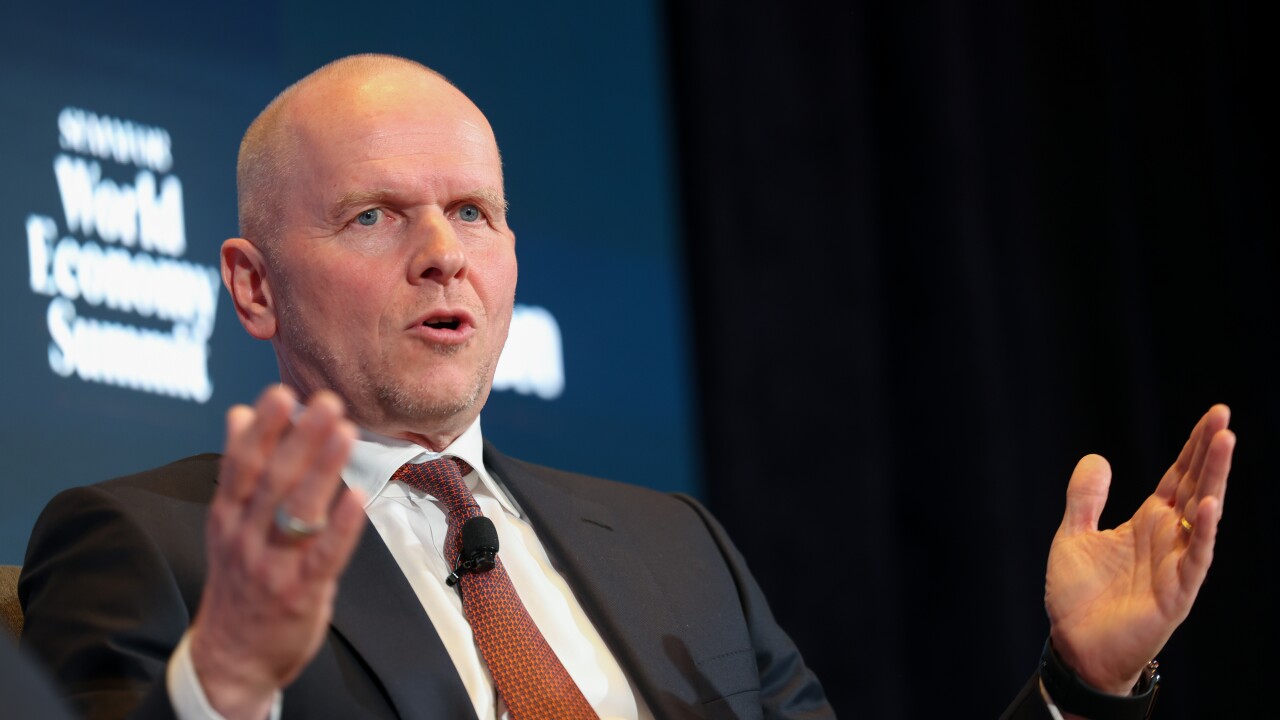
In the latest allegation that Wells Fargo has engaged in union busting activity, employees who are pushing to unionize say the bank's management engaged in unfair labor practices at an Oregon call center.
Staffers at the call center allege that flyers posted by members of Wells Fargo Workers United, which was established in late 2021 by employees seeking to unionize, were repeatedly torn down by managers. The flyers were distributed as part of a nationwide campaign to spread awareness about the group's progress.
Wells Fargo workers were also allegedly prohibited from wearing shirts bearing messaging and other imagery associated with the Committee for Better Banks, which helped establish the Workers United group.
The allegations of unfair labor practices were filed with the National Labor Relations Board on May 5. The Communications Workers of America, which represents people working in the communications industry and other sectors, filed the charges as the frontline workers' representative.
Wells Fargo said in a statement that it was closely reviewing the charges after receiving them earlier this week. The $1.9 trillion-asset bank added that it will "respect employees' rights under the National Labor Relations Act" and refuses to "tolerate retaliation of any kind."
Cole Weber, who works at the Beaverton, Oregon, call center, is one of two Wells Fargo employees whose complaints were included in the filing with the National Labor Relations Board.
In an interview, he said that he was told by management to remove the Committee for Better Banks shirts from Wells Fargo property on the grounds that they supposedly violated company solicitation policies. The Committee for Better Banks is a campaign founded by the Communications Workers of America.
"Fortunately, I am educated enough in my rights to tell them that the shirts aren't soliciting and are protected," Weber said. "If I had not been as well educated as I am, that would absolutely put pressure on employees utilizing their rights as an organizing activity."
Weber said that employees' efforts to highlight pain points within the company through an internal employee feedback system for providing insight into workplace concerns often go unanswered. And he expressed concerns about the company outsourcing jobs overseas.
"The main reason that I'm involved in the union organizing that we've been doing is because I feel like as a whole, we don't really have a voice at Wells Fargo," Weber said. "The ability of the company to relocate geographically to other U.S. locations, or even outsource to other countries, makes it hard for us to be able to stand up to attempts to replace us."
In the Oregon case, the National Labor Relations Board will assign an agent to begin a formal investigation and gather evidence before rendering its decision.
The unionization drive by Wells Fargo employees has inspired similar campaigns at some credit unions, including the $39 million-asset
"Younger workers are the vanguard of these movements," said Gerald Friedman, a professor of economics at the University of Massachusetts Amherst, who specializes in labor history.
Friedman said that
At Wells Fargo's annual meeting last month, shareholders voted on a proposal by
Earlier this month, Wells Fargo reached a
Wells Fargo's large U.S. presence creates an added degree of difficulty for employees seeking to unify its workforce across different jurisdictions, said Nick Weiner, co-director of the Committee for Better Banks. But starting locally can lead to key results, he said.
"There could be elections at individual branches or call centers to get the ball rolling, and each can be designated as having their own union once they've gone through the election process officiated by the NLRB," Weiner said.





